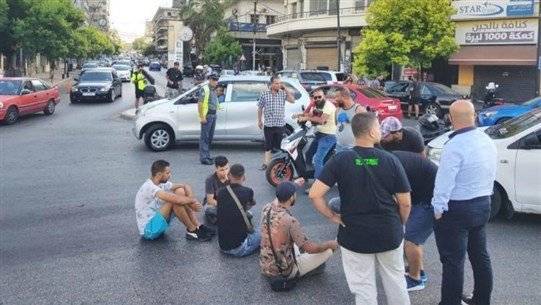Sidon has entered an open confrontation involving its political and popular forces, social and commercial influencers, and protest movements against some private generator owners who refuse to comply with the Ministry of Economy's pricing. The city witnessed two notable developments: the first was the arrest of 13 generator owners at the Sidon police station after they were summoned to sign a commitment to adhere to the official pricing, which they refused; the second involved a collective shutting down of generators in response, aiming to pressure the authorities for their release.
These developments followed a long series of previous meetings and communications between the city’s political forces and the municipality, ultimately leading to a call for the competent judiciary (the Attorney General of the South, Judge Raheef Ramadan) to take charge of the matter and for the Ministry of Economy to fulfill its responsibilities in monitoring and oversight, as well as for citizens to file complaints against any generator owner who violates the official pricing.
Sidonian sources informed "Voice of the Homeland" that lawyer Mohammed Al-Yemen had submitted a request on behalf of the generator owners to the municipality for protection and the provision of fuel to operate all generators in Sidon under its supervision. However, the request was denied, leading to a suggestion to form a committee with generator owners and specialists in the municipality to establish a fair pricing that satisfies everyone. This suggestion was also rejected, as prior experiences with them had not been encouraging. They were informed that the matter is now in the hands of the judiciary and security forces on one side, and the Ministry of Economy on the other, and the only feasible solution for them is to comply with the Ministry's pricing without any increases or additional fees, especially since they had forced all subscribers to install meters amidst the near-total electricity blackout, thereby recording usage hours without any loss.
The sources affirm that the positions of MPs Osama Saad and Abdul Rahman Al-Bazzari, Sidon Mayor Mohammed Saudi, and Mrs. Bahia Hariri, along with the political responsible for the "Islamic Group," Bassem Hamoud, are unified in wanting to put an end to the chaotic pricing, which has fluctuated this month between 80 - 94 cents, and to any increases or exploitation by some generator owners, asserting that there will be no leniency or submission to them regardless of the reasons. This was reiterated by Saudi during a press conference held with heads of the Sidon-Zahrani Municipalities Union to announce a three-day strike next week, from Monday to Wednesday, protesting the failure to pay their overdue dues for years from telephone and independent municipal fund revenues.
In a supportive step for the legal action, dozens of activists, close to the "Popular Nasirist Organization" and protest movements, gathered in Al-Najma Square in Sidon and blocked the road for some time after sitting on the ground. They demanded that generator owners restart their operations and adhere to the official pricing, and not evade responsibility while content with minimal profits without any exploitation.
### Crisis of Municipalities
Municipalities are experiencing an unprecedented financial crisis, finding themselves responsible for providing state services that fall outside their jurisdiction, particularly regarding the crises in electricity, generators, and water. Citizens hold them accountable as elected representatives, while they have not received their financial dues from mobile phone revenues since 2017 and from the independent municipal fund since 2019. Saudi told "Voice of the Homeland" that "none of the concerned officials has heard our cry; no one has contacted us; there is a clear indifference towards addressing this serious problem, as municipalities without money are like empty houses; without finance, there are no services." Meanwhile, 16 municipalities affiliated with the Sidon-Zahrani Municipalities Union declared that logic necessitates increasing financial entitlements to meet growing needs, stating that they are deprived of their rights and questioning how they will manage to continue working.




